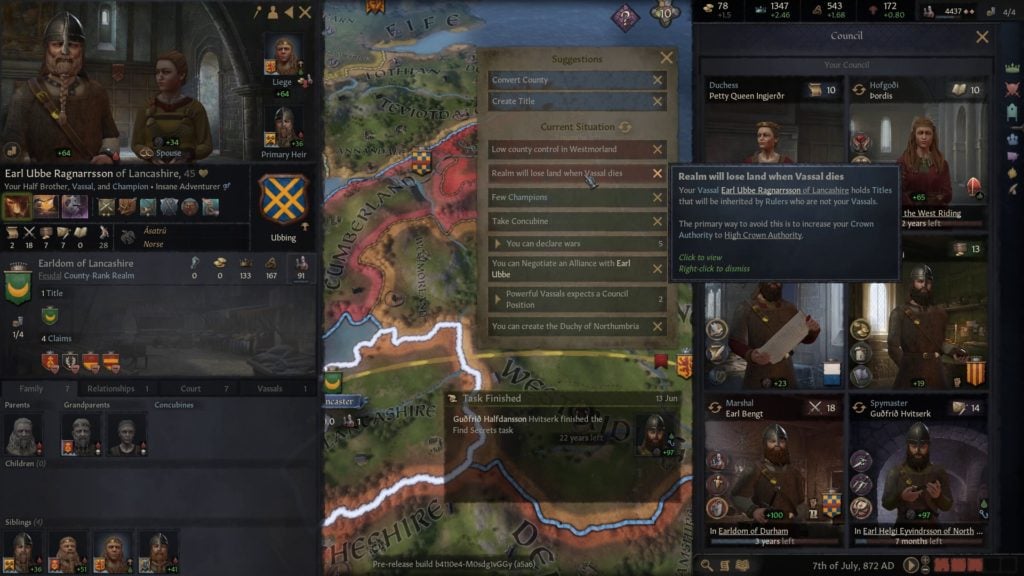
Whilst there’s depth to be explored with the different men-at-arms units that counter each other, it isn’t overbearing and the more complicated parts come into play as the game progresses, so you learn steadily. There are other elements at play, but these are the basics and should serve as sufficient ground rules for the rest of your game.Ĭompared to Europa Universalis 4, I feel combat is a lot easier to understand. Higher quality armies have more knights and men-at-arms. If you have an heir, you’ll play as that character.) Also, a factor is the quality of the army you’ve raised, which will be lower if your army is largely levies (farmers and commonfolk). (As an aside, dying in Crusader Kings 3 is not the end. You can even send yourself into battle as a commander if you’re confident enough, though this runs you the risk of getting captured or wounded/killed, which is obviously something of a disadvantage to the rest of your game. For instance, a commander with a higher combat skill compared to the opposing side will heavily influence the outcome in that army’s favour. Warfare in Crusader Kings 3 has a variety of factors to influence it.

However, I’m not very smart, so I stuck to pillaging and spilling blood to gain territory. If you’re smart enough, you can breed into a certain ruler’s dynasty and slowly worm your way into integrating the house into your own Kingdom. Growing your nation can be achieved a multitude of ways. To do this, though, you have to deal with your local neighbours in Ireland with you. The first early advice you’re given when playing as Petty King Murchad of Munster is to create the Kingdom of Ireland. This is where the largest chunk of my playtime was dedicated to.

It also starts you in something of a "tutorial nation", as the ruler of the Petty Kingdom of Munster in Ireland, 1066. For one, there's actually quite a detailed tutorial to start with, and this will teach you most of the core mechanics seen in-game, from warfare with other rulers to diplomatic matters (such as the new “Hook” system introduced). Paradox Interactive have seemingly taken extra steps this time around to make learning the game much easier than before. The reason I bring this up is that I've invested less than half the time I spent in Europa Universalis 4 into Crusader Kings 3 and, already, I feel somewhat confident with most of the core mechanics. With Crusader Kings 2, I almost immediately bounced off it, perhaps due to the intimidation of having to learn a brand new game. Even after that time, I don't feel particularly confident with the game or how it works. Most of my knowledge of it comes from a close friend of mine and my only major time spent with the genre prior to Crusader Kings 3, is about 50 hours spent on Europa Universalis 4. The best way to describe my relationship towards the Grand Strategy genre is "second-hand" fan. Reviews // 4th Sep 2020 - 2 years ago // By Dane Townsend Crusader Kings 3 Review


 0 kommentar(er)
0 kommentar(er)
